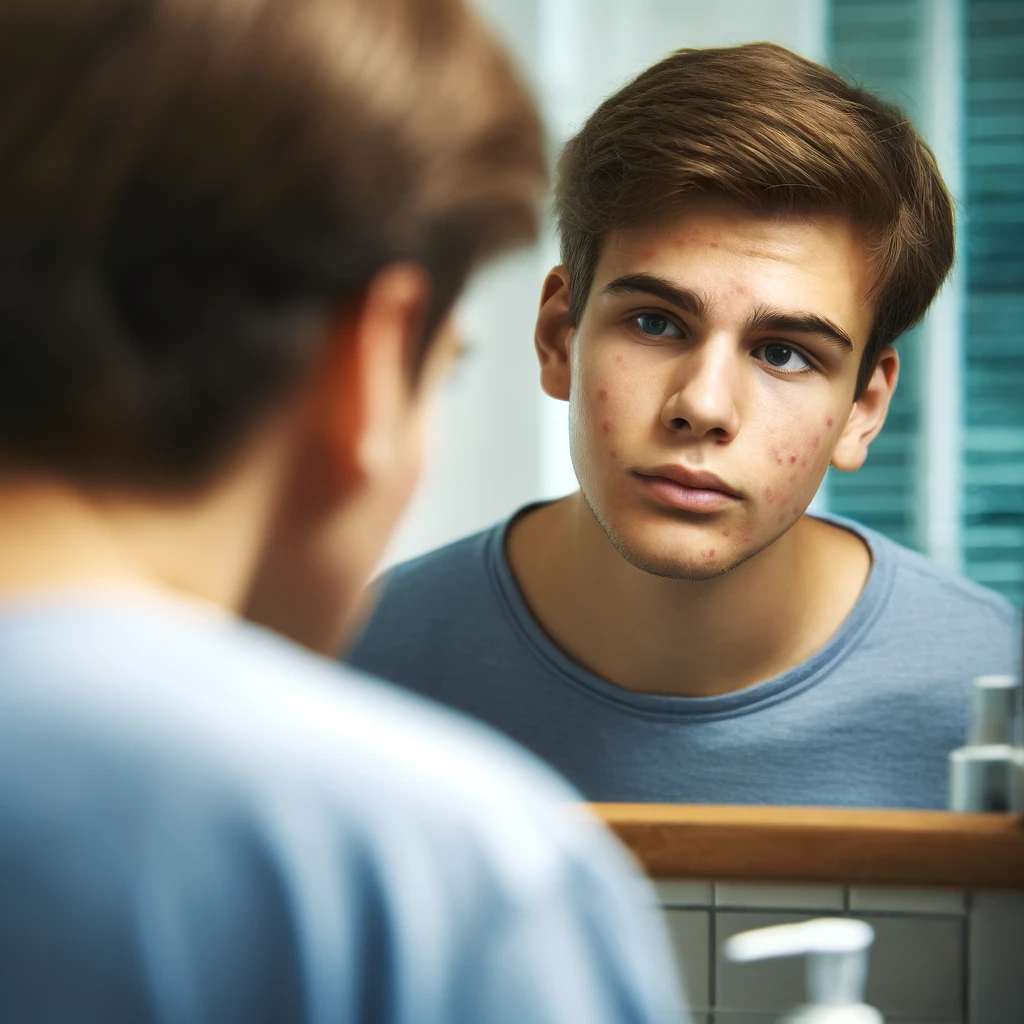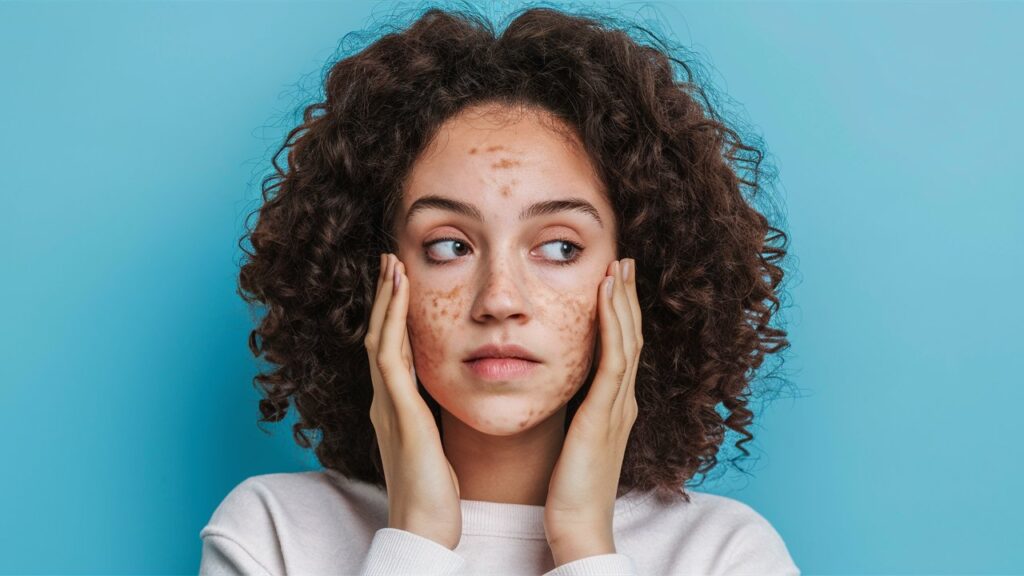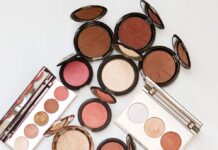Welcome, fellow teenagers and concerned parents! Acne, the unwelcome visitor on our faces, seems to have a knack for showing up at the most inconvenient times. But why does it target us during our teenage years? What can we do to tackle it head-on and reclaim our clear, glowing skin? Let’s dive into the depths of this topic and uncover the secrets behind teenage acne.
Table of Contents
What is Teenage Acne?
Ah, acne, the quintessential rite of passage for teens worldwide. It’s those pesky pimples, blackheads, and whiteheads that seem to pop up out of nowhere, turning our once-smooth complexion into a battleground. But what exactly is acne?
Teenage acne is a common skin condition characterized by the occurrence of pimples, blackheads, and whiteheads primarily on the face, but it can also affect the neck, chest, back, and shoulders. It occurs when hair follicles become clogged with oil and dead skin cells, leading to inflammation and the formation of blemishes.
Teenage Acne Causes: Unveiling the Culprits
Why does acne seem to have a special affinity for teenagers? Several factors contribute to the development of teenage acne, including:
Hormonal Changes
Hormonal fluctuations play a significant role in triggering acne during adolescence. As teenagers undergo puberty, their bodies produce an excess of hormones called androgens, which stimulate the sebaceous glands to produce more oil. This excess oil, combined with dead skin cells, can clog pores and lead to acne breakouts.
Genetics
Genetics also play a crucial role in determining an individual’s susceptibility to acne. If one or both parents struggled with acne during their teenage years, there’s a higher likelihood that their offspring will experience similar skin issues.
Diet
While it’s a hotly debated topic, some studies suggest that dietary factors may influence the development of acne in teenagers. Consuming a diet high in refined sugars, processed foods, and dairy products could exacerbate acne symptoms for some individuals.
Environmental Factors
Environmental factors such as pollution, humidity, and exposure to certain chemicals can also contribute to acne flare-ups. It’s essential to keep the skin clean and protected from environmental pollutants to minimize the risk of breakouts.
Hormonal Havoc: The Root of Teenage Acne
As mentioned earlier, hormonal fluctuations play a significant role in the development of teenage acne. But how exactly do hormones wreak havoc on our skin?
During puberty, the body undergoes a surge of hormonal activity, particularly androgens such as testosterone. These hormones stimulate the sebaceous glands, located beneath the skin’s surface, to produce an oily substance called sebum. While sebum is necessary to keep the skin moisturized, an excess of it can lead to clogged pores and acne breakouts.
In addition to increased sebum production, hormonal changes can also affect the rate at which skin cells shed and regenerate. When skin cells don’t shed properly, they can mix with excess sebum and form plugs that block the hair follicles, leading to the formation of blackheads, whiteheads, and pimples.
Understanding Acne Treatment for Teens
Now that we’ve unraveled the mystery behind teenage acne, it’s time to explore effective treatment options. While there’s no one-size-fits-all solution, several strategies can help teenagers manage their acne effectively:
Over-the-Counter (OTC) Treatments
Over-the-counter acne treatments containing ingredients like benzoyl peroxide, salicylic acid, or sulfur can help unclog pores, reduce inflammation, and kill acne-causing bacteria. These products are readily available at pharmacies and can be used as part of a daily skincare routine.
Prescription Medications
For more severe cases of acne, prescription medications such as topical retinoids, oral antibiotics, or hormonal therapies may be necessary. These treatments work by targeting the underlying causes of acne and can help prevent future breakouts.
Lifestyle Modifications
Making lifestyle modifications such as maintaining a healthy diet, practicing good skincare habits, and managing stress levels can also have a positive impact on acne. Avoiding triggers like greasy foods, touching the face excessively, and using harsh skincare products can help prevent breakouts.
Healthy Skin Tips for Teenagers
Prevention is key when it comes to managing teenage acne. Here are some healthy skin tips to help teenagers maintain clear, radiant skin:
1. Cleanse Twice Daily
Cleansing the skin twice daily with a gentle cleanser helps remove excess oil, dirt, and impurities without stripping away natural moisture. Look for a non-comedogenic cleanser that won’t clog pores.
2. Moisturize Regularly
Moisturizing is essential for maintaining balanced skin hydration, even for acne-prone skin. Opt for oil-free, non-comedogenic moisturizers that won’t clog pores or exacerbate breakouts.
3. Protect from Sun Exposure
Sunscreen is your skin’s best friend, especially when it comes to acne-prone skin. Choose a broad-spectrum sunscreen with an SPF of 30 or higher and apply it generously every day, even on cloudy days.
4. Avoid Picking or Popping Pimples
Resist the urge to pick or pop pimples, as this can worsen inflammation, increase the risk of scarring, and spread bacteria. Instead, apply a spot treatment containing benzoyl peroxide or salicylic acid to help reduce the size and redness of pimples.
5. Stay Hydrated and Eat a Balanced Diet
Hydration is key for healthy skin, so be sure to drink plenty of water throughout the day. Additionally, focus on eating a balanced diet rich in fruits, vegetables, whole grains, and lean proteins to nourish your skin from the inside out.
Stress and Acne: The Connection
Teenage years are often fraught with academic pressures, social challenges, and hormonal fluctuations, all of which can contribute to stress. But did you know that stress can also exacerbate acne?
When we experience stress, our bodies release hormones like cortisol, which can stimulate the sebaceous glands to produce more oil. This excess oil, combined with the buildup of dead skin cells, creates an ideal environment for acne-causing bacteria to thrive, leading to more frequent and severe breakouts.
To combat stress-related acne, it’s essential to practice stress-reduction techniques such as mindfulness, deep breathing exercises, regular physical activity, and adequate sleep. Taking steps to manage stress not only benefits your skin but also your overall health and well-being.
Myths vs. Facts: Dispelling Misconceptions
In the realm of teenage acne, myths and misconceptions abound. Let’s separate fact from fiction and debunk some common myths:
Myth: Eating Greasy Foods Causes Acne
Fact: While consuming excessive amounts of greasy or oily foods may contribute to overall skin health, there’s limited scientific evidence to suggest that specific foods directly cause acne. However, maintaining a balanced diet can support overall skin health and may help reduce the severity of acne.
Myth: Only Teenagers Get Acne
Fact: While acne is most common during adolescence, it can affect individuals of all ages, including adults. Adult-onset acne is a real phenomenon and may be triggered by hormonal fluctuations, stress, or other factors.
Myth: Scrubbing the Skin Vigorously Prevents Acne
Fact: Scrubbing the skin too vigorously or using harsh exfoliants can actually exacerbate acne by irritating the skin and causing inflammation. Gentle cleansing and exfoliation are key for acne-prone skin.
Building Confidence Beyond Acne
Living with acne can take a toll on your confidence and self-esteem, but it’s essential to remember that clear skin does not define your worth. Focus on nurturing your inner beauty, cultivating healthy relationships, and pursuing your passions and interests. With the right mindset and support system, you can overcome the challenges of acne and embrace your unique beauty.
Understanding Acne Types
Acne can manifest in various forms, including:
- Whiteheads: Closed plugged pores.
- Blackheads: Open plugged pores.
- Papules: Small red, tender bumps.
- Pustules: Pimples containing pus.
- Cysts: Deep, painful lumps beneath the skin.
- Nodules: Large, solid, painful lumps beneath the skin.
Each type of acne requires a different approach to treatment, so understanding the specific characteristics is crucial for effective management.
Causes of Teens Acne
Several factors contribute to the development of acne in teenagers:
- Hormonal Changes: Fluctuations in hormone levels, particularly during puberty, can stimulate the sebaceous glands to produce more oil, leading to acne.
- Genetics: A family history of acne can increase the likelihood of experiencing breakouts.
- Poor Skincare Habits: Failure to cleanse the skin regularly or using harsh products can exacerbate acne.
- Dietary Factors: Certain foods, such as dairy and high-glycemic foods, may trigger acne in some individuals.
Understanding these underlying causes can help teens make informed choices about their skincare routine and lifestyle habits.
Common Myths About Teens Acne
Despite widespread awareness of acne, several myths persist:
- Myth: Acne is caused by poor hygiene. While cleanliness is essential for healthy skin, acne is primarily influenced by hormonal factors and genetics.
- Myth: Sun exposure clears acne. While sunlight may initially improve acne by drying out the skin, prolonged sun exposure can worsen inflammation and lead to long-term damage.
- Myth: Popping pimples makes them go away faster. Squeezing or picking at acne lesions can cause further inflammation and increase the risk of scarring.
Dispelling these myths is crucial for promoting accurate information and effective acne management.
Skincare Tips for Teens Acne
Maintaining a consistent skincare routine is essential for managing acne:
- Gentle Cleansing: Use a mild cleanser twice daily to remove excess oil, dirt, and impurities without stripping the skin.
- Non-Comedogenic Products: Choose skincare and makeup products labeled as non-comedogenic, meaning they won’t clog pores.
- Moisturization: Even oily skin requires hydration, so opt for a lightweight, oil-free moisturizer to prevent dryness.
- Sun Protection: Apply a broad-spectrum sunscreen with SPF 30 or higher daily to protect the skin from harmful UV rays.
By adopting these skincare practices, teens can minimize acne breakouts and promote healthier skin.
Effective Treatment Options
In addition to skincare, various treatment options are available for teens acne:
- Topical Treatments: Over-the-counter or prescription creams containing ingredients like benzoyl peroxide, salicylic acid, or retinoids can help unclog pores and reduce inflammation.
- Oral Medications: In severe cases, oral antibiotics or hormonal medications may be prescribed to target bacteria and regulate hormone levels.
- Professional Procedures: Dermatological procedures such as chemical peels, microdermabrasion, or laser therapy can help improve acne symptoms and reduce scarring.
Consulting a dermatologist can help teens determine the most suitable treatment plan based on their individual needs and skin type.
Lifestyle Factors and Acne
Certain lifestyle factors can influence acne:
- Stress Management: High levels of stress can exacerbate acne, so practicing relaxation techniques such as meditation or yoga may be beneficial.
- Dietary Modifications: While the link between diet and acne is still debated, some individuals find that reducing dairy, sugar, and processed foods can improve their skin.
- Regular Exercise: Engaging in regular physical activity can help reduce stress levels and promote overall well-being, which may indirectly benefit acne management.
Encouraging healthy lifestyle habits can complement skincare efforts and contribute to clearer skin.
FAQs (Frequently Asked Questions)
Q: Can wearing makeup worsen acne? A: While makeup itself may not directly cause acne, certain products can clog pores and exacerbate breakouts. Opt for non-comedogenic and oil-free makeup formulas to minimize the risk of acne flare-ups.
Q: Is it safe to pop pimples at home? A: Popping pimples at home can lead to further inflammation, infection, and scarring. It’s best to leave acne lesions alone and seek professional treatment if necessary.
Q: How long does it take to see results from acne treatment? A: The timeframe for seeing results from acne treatment varies depending on the severity of the condition and the chosen treatment method. Some individuals may notice improvements within a few weeks, while others may require several months of consistent treatment.
Q: Can hormonal changes during menstruation affect acne? A: Yes, hormonal fluctuations during menstruation can lead to an increase in acne breakouts for some individuals. Maintaining a consistent skincare routine and managing stress levels can help minimize hormonal acne flare-ups.
Q: Is it necessary to avoid all types of oil in skincare products for acne-prone skin? A: Not all oils are problematic for acne-prone skin. In fact, certain oils, such as jojoba oil or tea tree oil, have anti-inflammatory and antibacterial properties that can benefit acne-prone skin. Look for non-comedogenic oils and test products on a small patch of skin before widespread use.
Q: Can acne be cured permanently? A: While acne can be effectively managed and controlled with proper skincare and treatment, there is no guaranteed permanent cure for acne. However, many individuals experience significant improvement in their skin condition with consistent care and adherence to treatment recommendations.
1. What are the main causes of teenage acne?
Teenage acne is primarily caused by hormonal fluctuations, genetics, diet, and environmental factors.
2. How can teenagers effectively treat acne?
Effective acne treatment for teens may include over-the-counter products, prescription medications, and lifestyle modifications such as maintaining a healthy diet and skincare routine.
3. Are there any natural remedies for teenage acne?
While some natural remedies like tea tree oil and honey may help reduce acne symptoms, it’s essential to consult with a dermatologist before trying any new treatments.
4. Can stress worsen acne in teenagers?
Yes, stress can exacerbate acne by stimulating the sebaceous glands to produce more oil, leading to increased breakouts.
5. How long does teenage acne typically last?
Teenage acne typically improves with age, but the duration can vary from person to person. With proper treatment and skincare habits, most individuals see significant improvement within a few months to a year.
In conclusion, teenage acne may seem like an unavoidable part of growing up, but armed with the right knowledge and strategies, you can effectively manage and overcome it. Remember to be patient with your skin and yourself, and don’t hesitate to seek help from a dermatologist if needed. With persistence and perseverance, you can achieve the clear, healthy skin you deserve.
if you want a specialist go here






